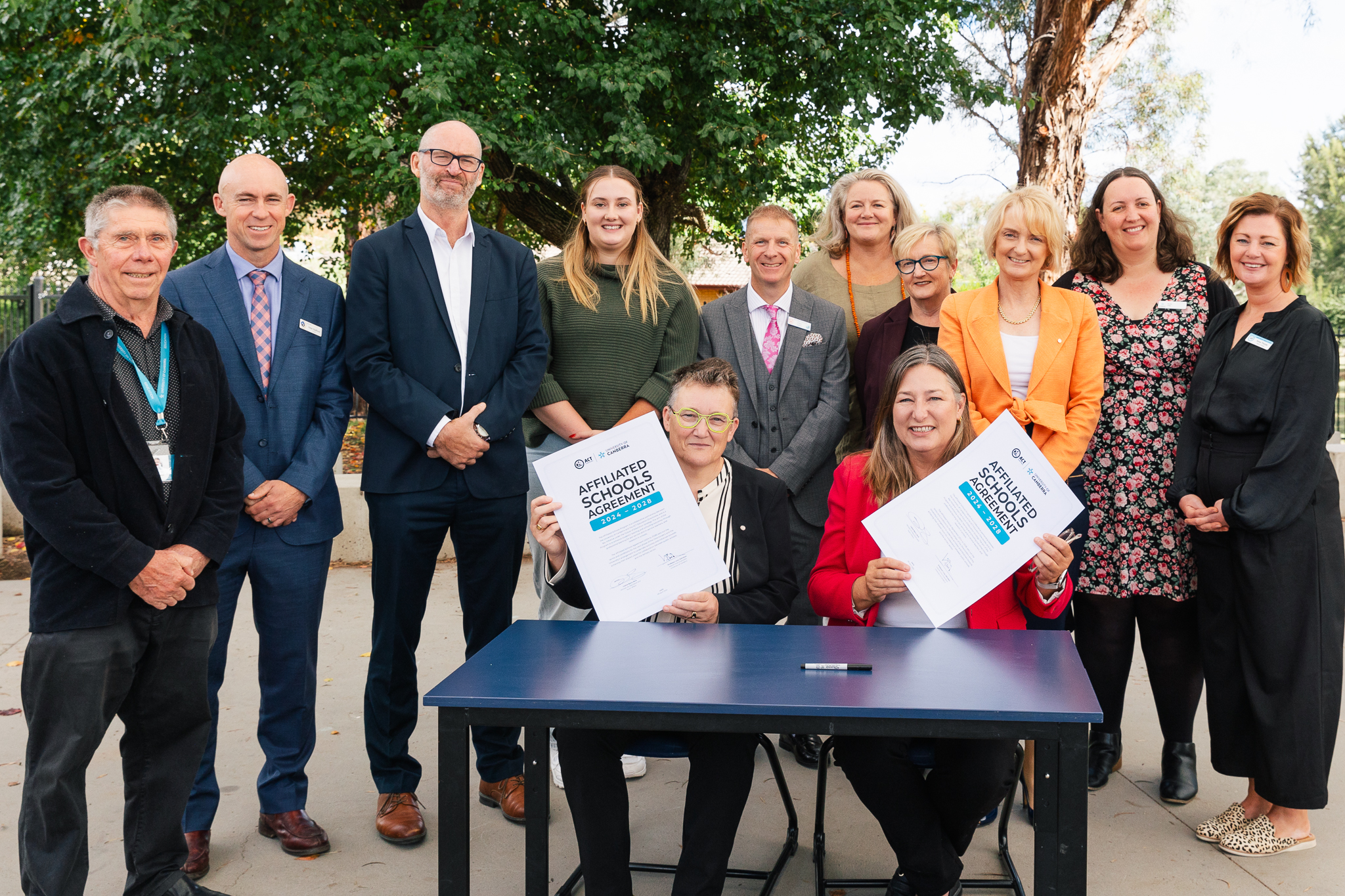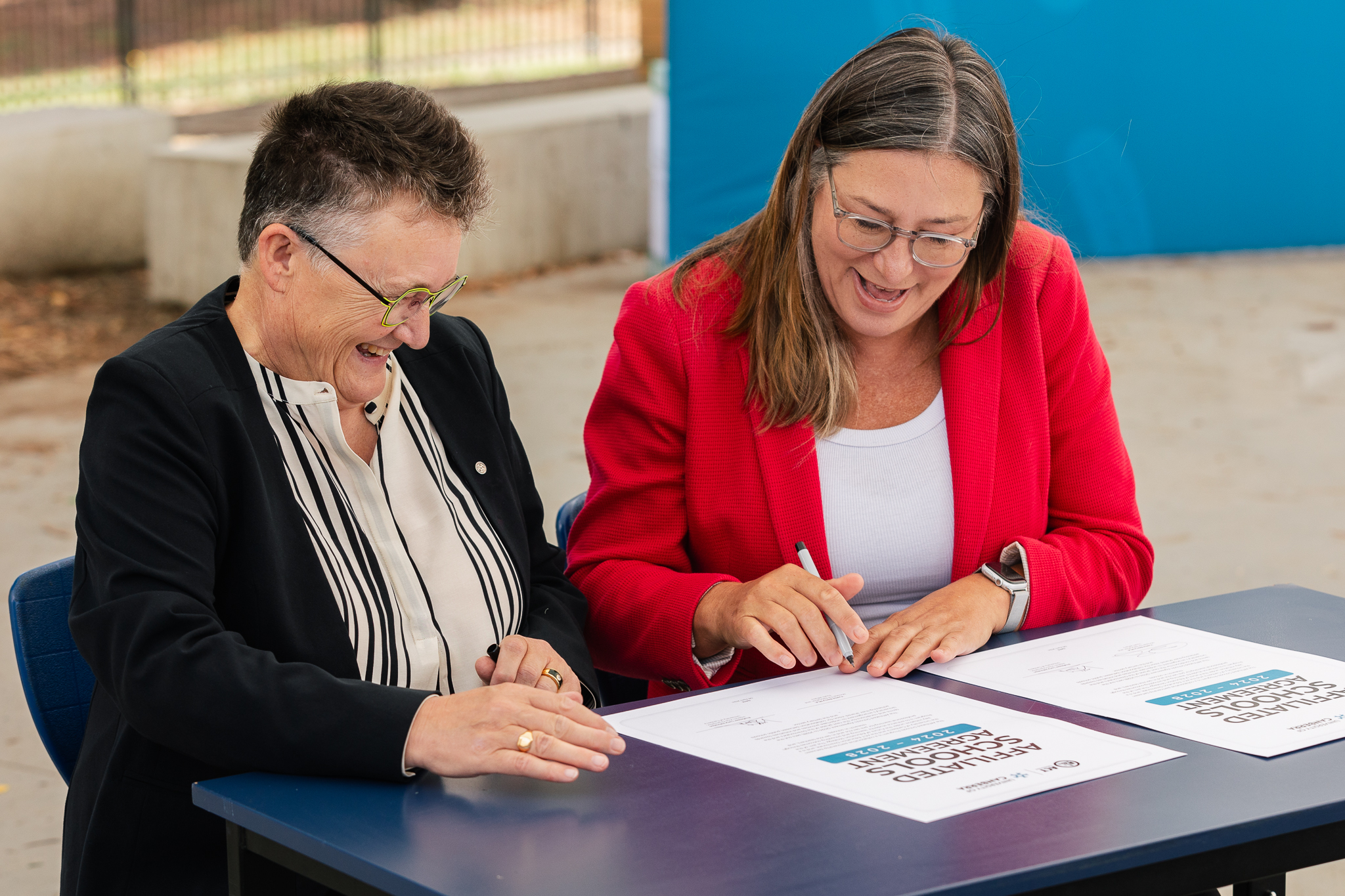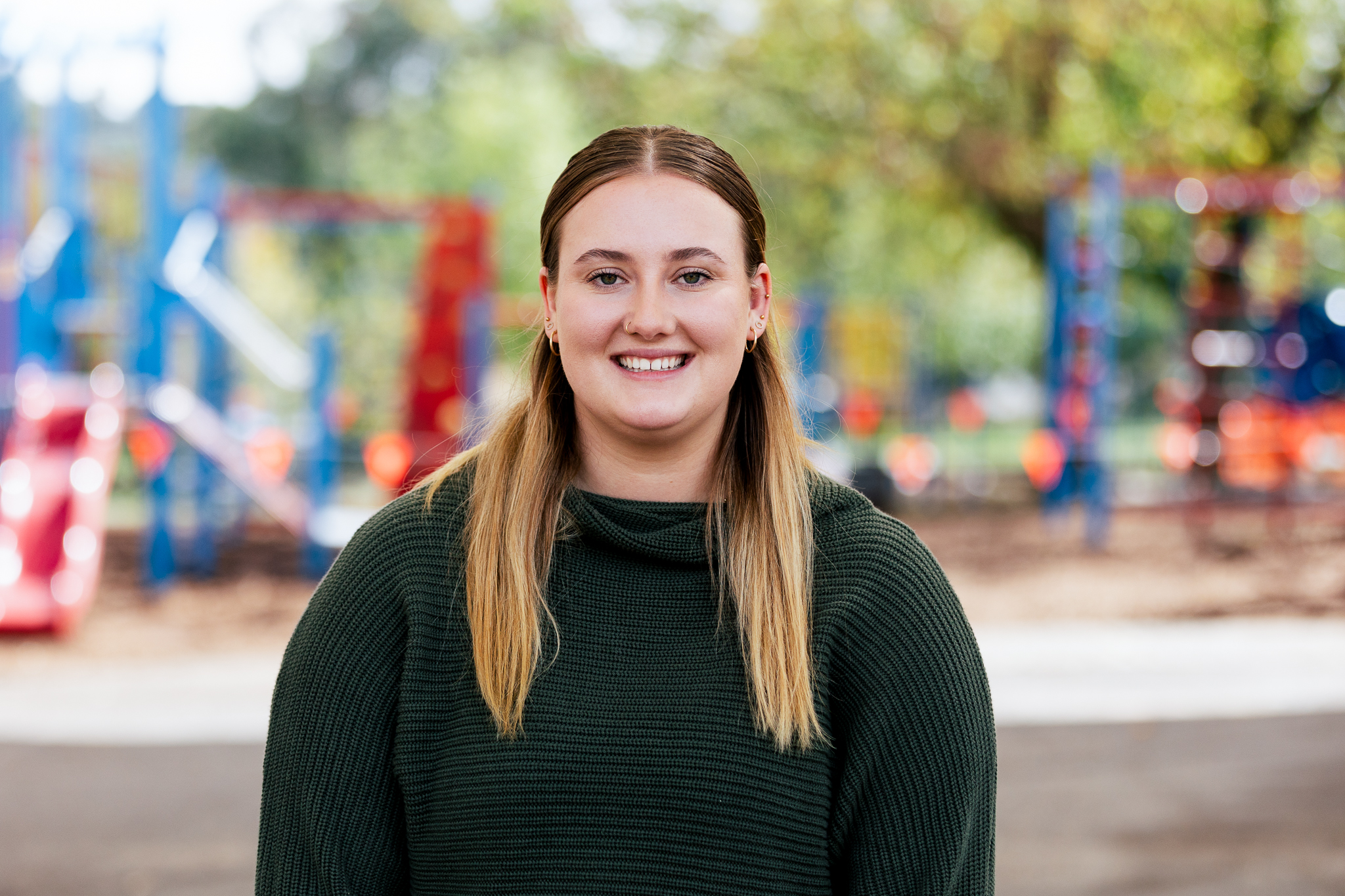
Kelly White
11 April 2024: The ACT Government and the University of Canberra have signed on for another five years of the industry-leading Affiliated Schools Agreement.
A unique, flagship partnership between the ACT Government and the University, the Agreement covers three key aspects of education: high quality initial teacher education, professional development for current teachers and relevant, impactful school-based research.
This second phase will see the successful partnership extended, and represents a government investment of over $12 million.
A total of 25 ACT public schools have been selected to participate in the 2024-28 program, with ten new schools joining across early childhood, primary and secondary school.
At a ceremony held at Miles Franklin Primary School, the Minister for Education and Youth Affairs Yvette Berry and Interim Vice-Chancellor Professor Lucy Johnston officially signed the new Agreement, paving the way for its next phase.

Professor Johnston said the program was strongly aligned with the University’s decadal strategy, Connected, by prioritising research with impact, and building strong connections to government and industry partners in the ACT and region.
“From co-designed, school-based research that has direct value and impact for ACT public schools, to mutually beneficial secondment opportunities, the flow of expertise goes both ways, and benefits the University, ACT public schools, current and future teachers, and school students,” Professor Johnston said.
One key feature of the program, the unique preservice teacher clinics, has received praise for providing authentic learning for students studying to be teachers at the University.
“Work Integrated Learning is deeply embedded in our ethos at UC,” Professor Johnston said.
“Our initial teacher education courses are exemplars for providing classroom-based learning for preservice teachers, through our best-practice, school-based clinics, and professional placements.
“The strong ties cultivated with our Affiliate schools and the Directorate have enabled teacher education programs to achieve greater engagement with a more diverse range of schools than any other provider nationally.”

The clinics, also known as Pedagogical Content-Knowledge (PCK) clinics, see preservice teachers working alongside their peers to develop and deliver lessons to small groups of school students.
Fourth year Bachelor of Primary Education student, Imogen Bailey, who is now working at Miles Franklin Primary School, said the clinics helped her develop her skills.
“Thanks to the PCK classes, I've been able to go to different schools and target specific areas of learning. Being able to hone in on that learning area, as well as being able to gain experience in the classroom, is very valuable,” Ms Bailey said.
“It’s been great to learn through teaching. I’ve met a lot of different students and learned how to teach those students.
“Now, I get to use those strategies I’ve learned, and the resources I’ve built up, in my own classroom.”
Executive Dean of the Faculty of Education, Professor Barney Dalgarno said he was pleased to see the partnership move into a new phase, with a renewed focus not only on initial teacher education, but the continued support and development of teachers throughout their careers in the ACT.
“The next phase of the Affiliated Schools Agreement will build on what has been an immensely beneficial flagship partnership,” Professor Dalgarno said. “And what sets this partnership apart is the prioritisation of professional development through all stages of a teacher’s career.
“From instilling our preservice teachers with the foundational knowledge to be excellent classroom educators, to professional development opportunities, scholarships and mentorship for early and mid-career to expert teachers, the Agreement sets the standard for a flourishing community of practice, with a powerful shared goal.”


